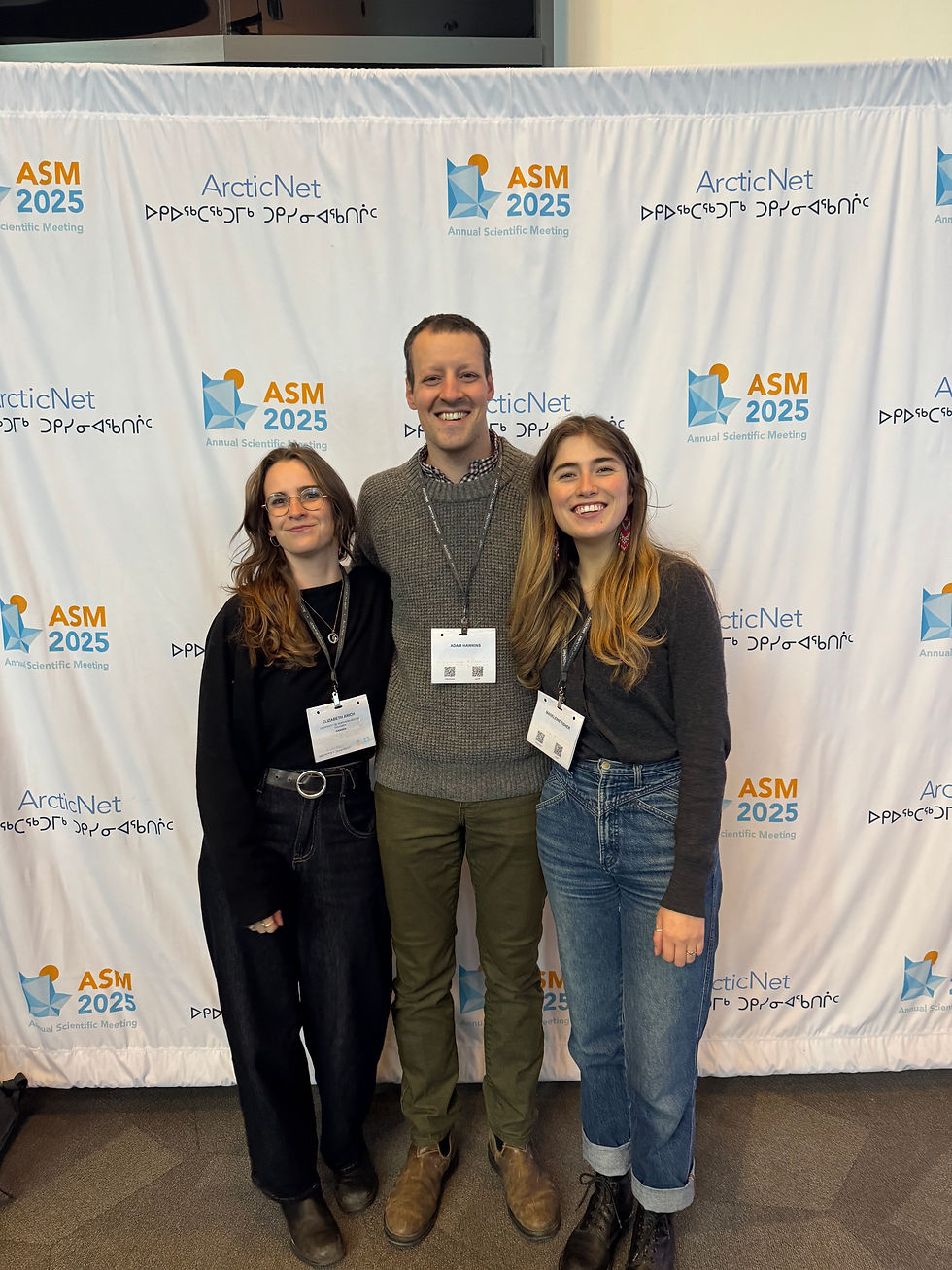Up close with Christiana Figueres
- ECRG

- May 12, 2015
- 3 min read

Evelyn Rodriguez Meija (MA Candidate) and Rachele Wilson (BSc Hons Graduate) were recently in Sydney, Australia to attend the "Up Close with Christiana Figueres, Executive Secretary of the United Nations Framework Convention on Climate Change (UNFCCC)" event sponsored by 1 Million Women and 350 Australia.
Last Tuesday, 5 May 2015, we took the opportunity to listen to Chrisitana Figueres, Secretariat for the UNFCCC, talk about the upcoming COP21 and how the new framework will work, at an event organised by 350.org and 1 Million Women at the Sydney Theatre Company.
We were welcomed by the Sydney Theatre Company, where the venues spokeswoman explained how the theatre was happy to host such an event due to their shared concern for climate change action, describing their recent 40% GHG emissions reductions from 2010 to 2014. A Wiradjuri woman, Aunty Millie, welcomed us to Gadigal country and explained her personal belief that all Australians are custodians of this country, that through our connections to the land we are united and must act as such when making decisions that impact our environment. The host organisations gave their welcomes as well and introduced Christiana.

Christiana outlined what the UNFCCC are trying to do in Paris this December through posing and answering seven questions:
Q1. Are we trying to stunt or accelerate growth (in the context of developing countries and resource-rich countries like Australia)?
Answer. This aims to protect and support the existing wave of development, on renewables. It’s about poising us for a new stage of growth.
Q2. Is it about “solving” climate change in Paris? Answer. We are not going to solve climate change in Paris. We’re going to construct a long term framework and establish a pathway for different countries through Internal National Carbon Management Plans (INCMP). For example, China announced it will peak emissions in 2030 and phase out coal usage by 2050. We’re acknowledging that we’re going to be taking everyone to peak emissions before reductions.
Q3. Is this a bottom-up approach? Or a top-down approach that responds to science? Answer. It’s both. Bottom-up, based on what countries will put in through those INCMPs, but top-down in that we must reach that long term, collective goal. Progress towards targets will be monitored through an international monitoring system that requires nations to report regularly.
Q4. Is this going to be facilitative or purgative? Answer. We know from Kyoto that legal, strict structures are neither effective, nor predictable. Therefore we will use incentives, which will open up broader participation.
Q5. Is this going to be an agreement of the major emitters (i.e. the top 20 countries)? Answer. There is not one country that has been, or will be further, affected by climate change. Therefore, everyone is invited to the table. We have a moral obligation to those countries most vulnerable to climate change impacts, particularly small island developing states (SIDS).
Q6. Is it about mitigation? Or adaptation? Answer. Both. Because the greater the time spent on mitigation, the greater the cost of adaptation.
Q7. Is this about what Federal Governments have to do? Or what everyone has to do? Answer. Both. Governments have to put the framework together, but this issue involves everyone, from governments to investors, communities and industries. If we’re going to transform the system we’re all embedded in, everyone has to participate. We need to transform our technology, but to do that we need the people to demand low-carbon technologies. The power of the individual and every level of the system is crucial. This will be the first intentional transformation of our time (as the previous two, the industrial revolution and information age, were market driven) because the alternative is unacceptable.
At question time, ECRG member Evelyn asked “how are you planning to involve developing countries in the framework?” Christiana responded that the real question is how are we going to support those 130 nations of the “G77” group? As an example, she explained how 50% of the world’s women currently spend most of their day sourcing food over long distances and cooking it on an open fire, which collectively contributes to those nations’ GHG emissions. She said if each of those women were given a cook stove, not only would this reduce emissions but those women would then have more spare time for other things and be safer as many women experience attacks when going to collect firewood or water.




Comments